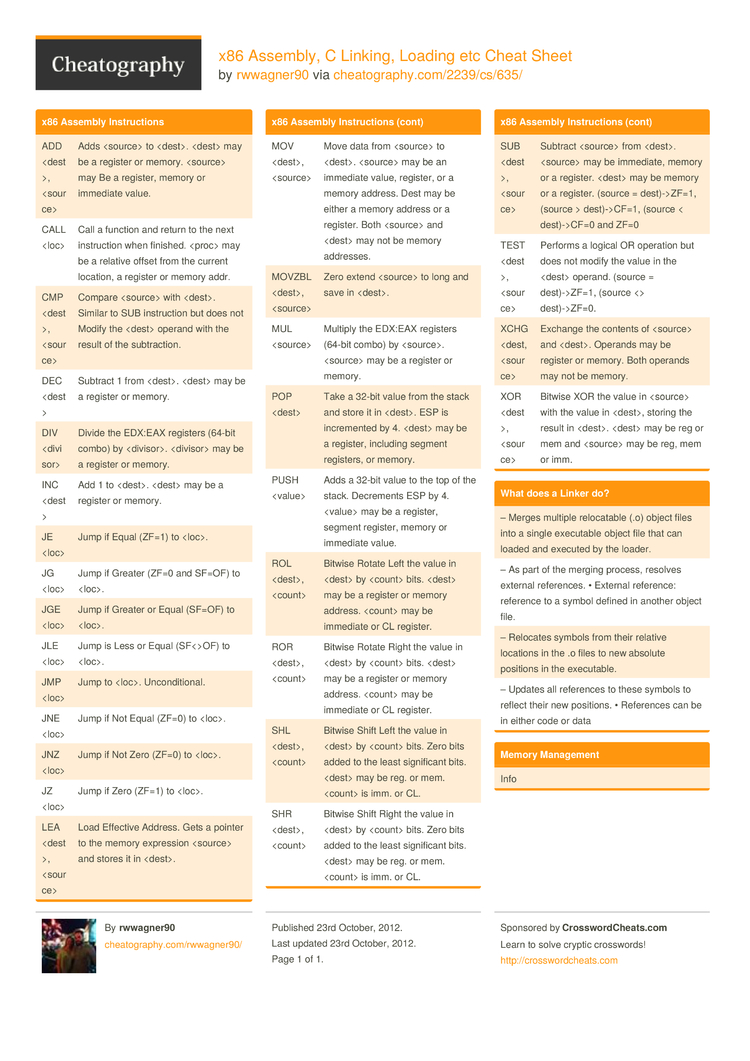This post is just a little cheat sheet for myself on Intel & AT&T syntax.
A useful table mapping some simple instructions between the two syntaxes linked through from the GCC-Inline-Assembly-HOWTO:
| Intel Code | AT&T Code |
|---|---|
mov eax,1 | movl $1,%eax |
mov ebx,0ffh | movl $0xff,%ebx |
int 80h | int $0x80 |
mov ebx, eax | movl %eax, %ebx |
mov eax,[ecx] | movl (%ecx),%eax |
mov eax,[ebx+3] | movl 3(%ebx),%eax |
mov eax,[ebx+20h] | movl 0x20(%ebx),%eax |
add eax,[ebx+ecx*2h] | addl (%ebx,%ecx,0x2),%eax |
lea eax,[ebx+ecx] | leal (%ebx,%ecx),%eax |
sub eax,[ebx+ecx*4h-20h] | subl -0x20(%ebx,%ecx,0x4),%eax |
IA32 gnu Cheat Sheet Integer Registers (4 byte)%eip instruction pointer%esp stack pointer%ebp base pointer for stack frame%eax return values; low of pair for mul/div with%edx; intermediate%edx Signed Comparisons:high of pair for mul/div pair with%eax; intermediate%ecx intermediate%ebx base address for arrays; callee save. Bit Operations Bit Shifting & Rotation Bit Counting Specials Transactional Memory Comparisons String Compare Overview Each intrinsic i s only available on machines which support the.
Some important points to note:
At&t Assembly Cheat Sheet
- Source and destinations are flipped in opcodes.
- Intel is dest, src
- AT&T is src, dest
- AT&T decorates registers and immediates
- Registers are prefixed with a “%”
- Immediates are prefixed with a “$”. This applies to variables being passed in from C (when you’re inline).
- Intel decorates memory operands to denote the operand’s size, AT&T uses different mnemonics to accomplish the same.
- Intel syntax to dereference a memory location is “[ ]”. AT&T uses “( )”.
X64 Cheat Sheet

X86 Assembly Cheat Sheet
Related Posts
